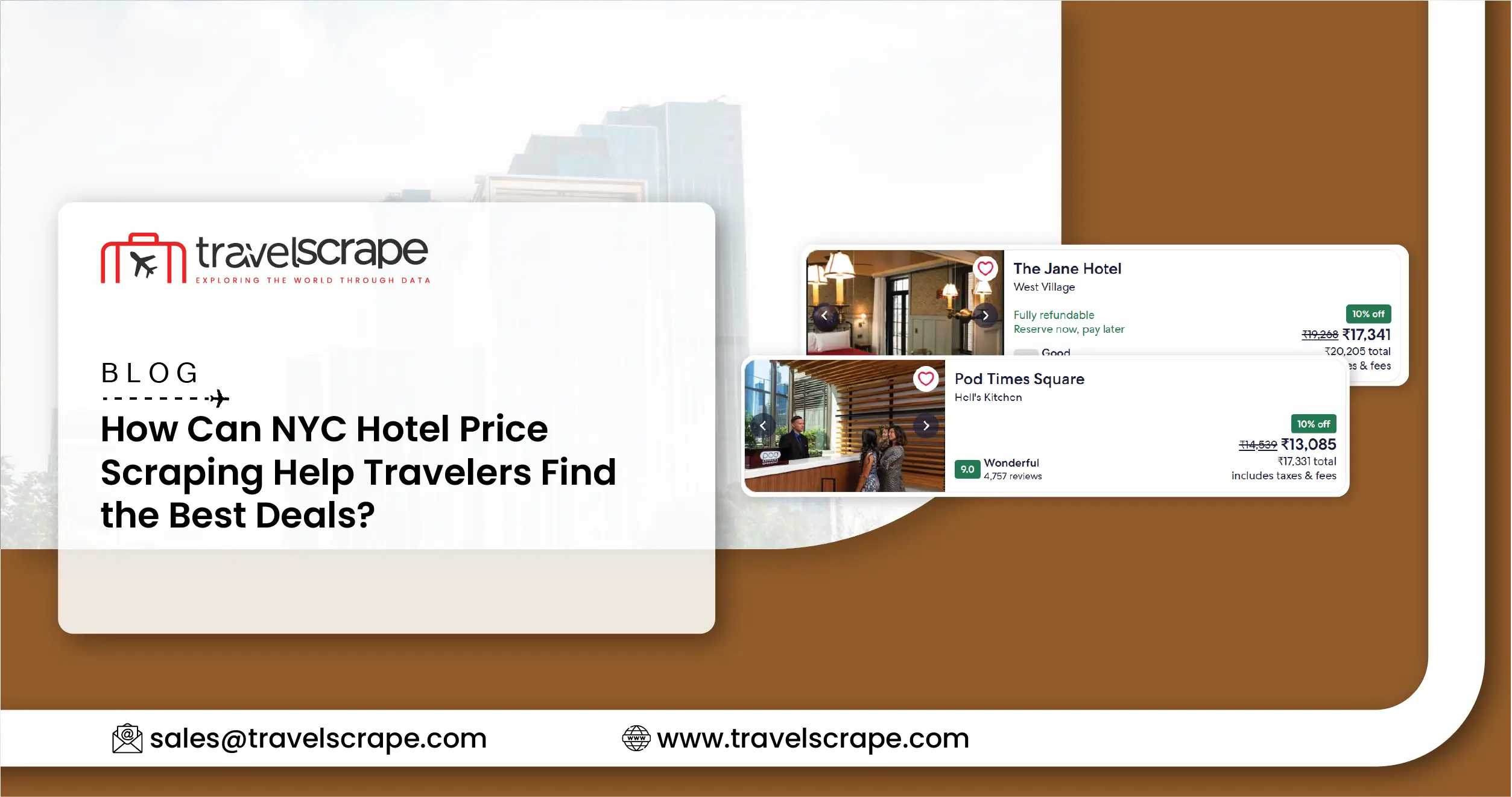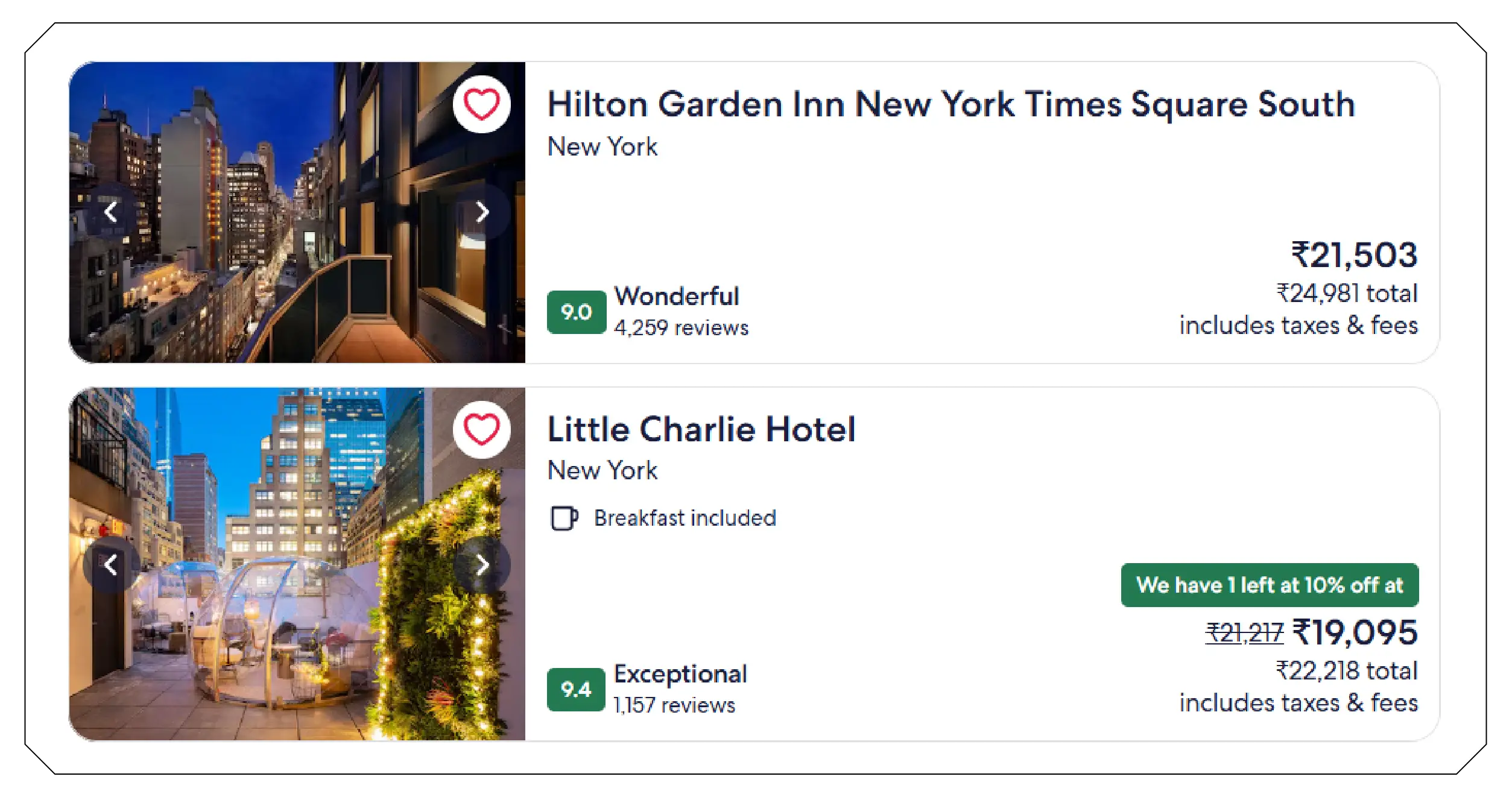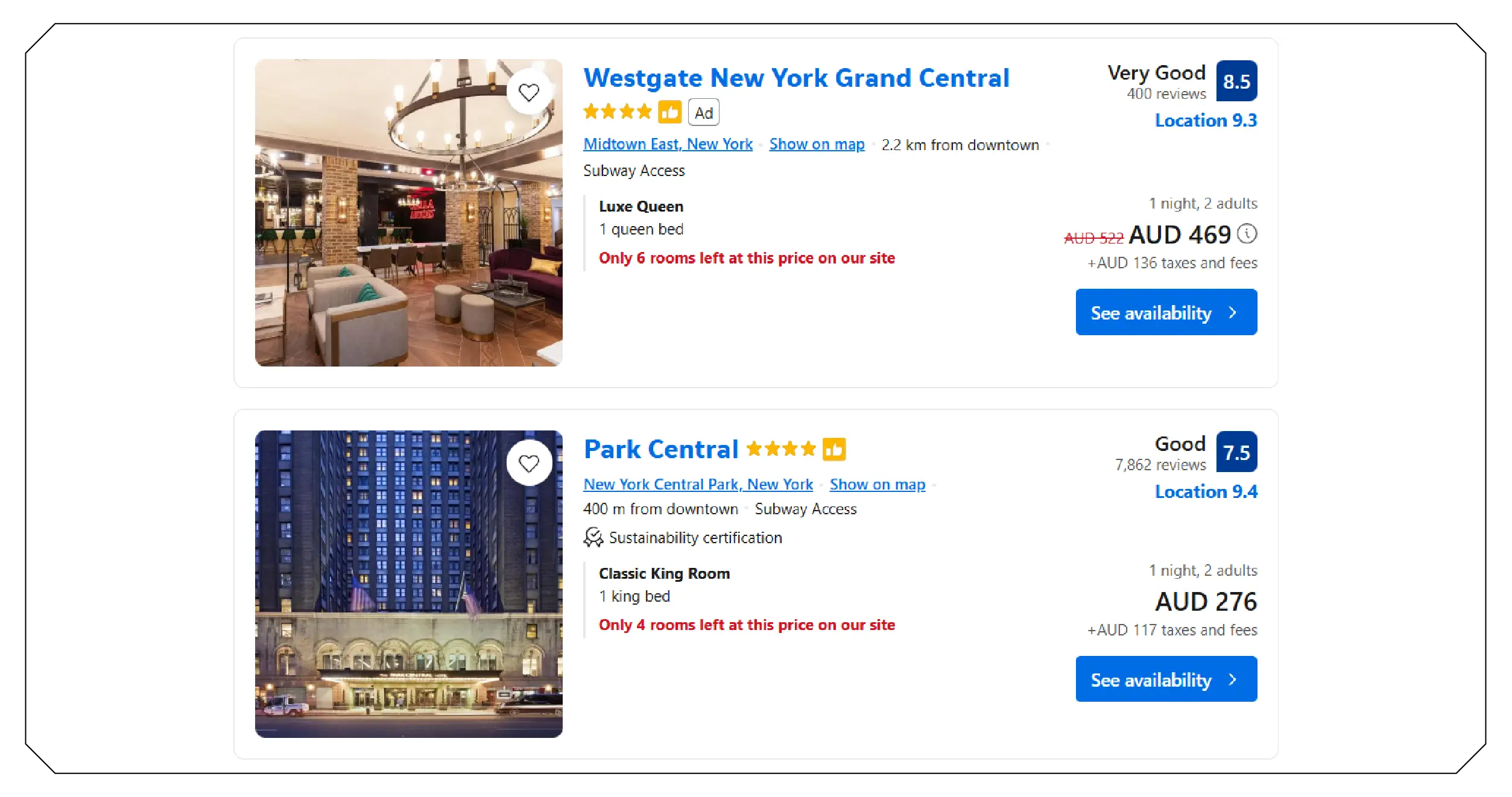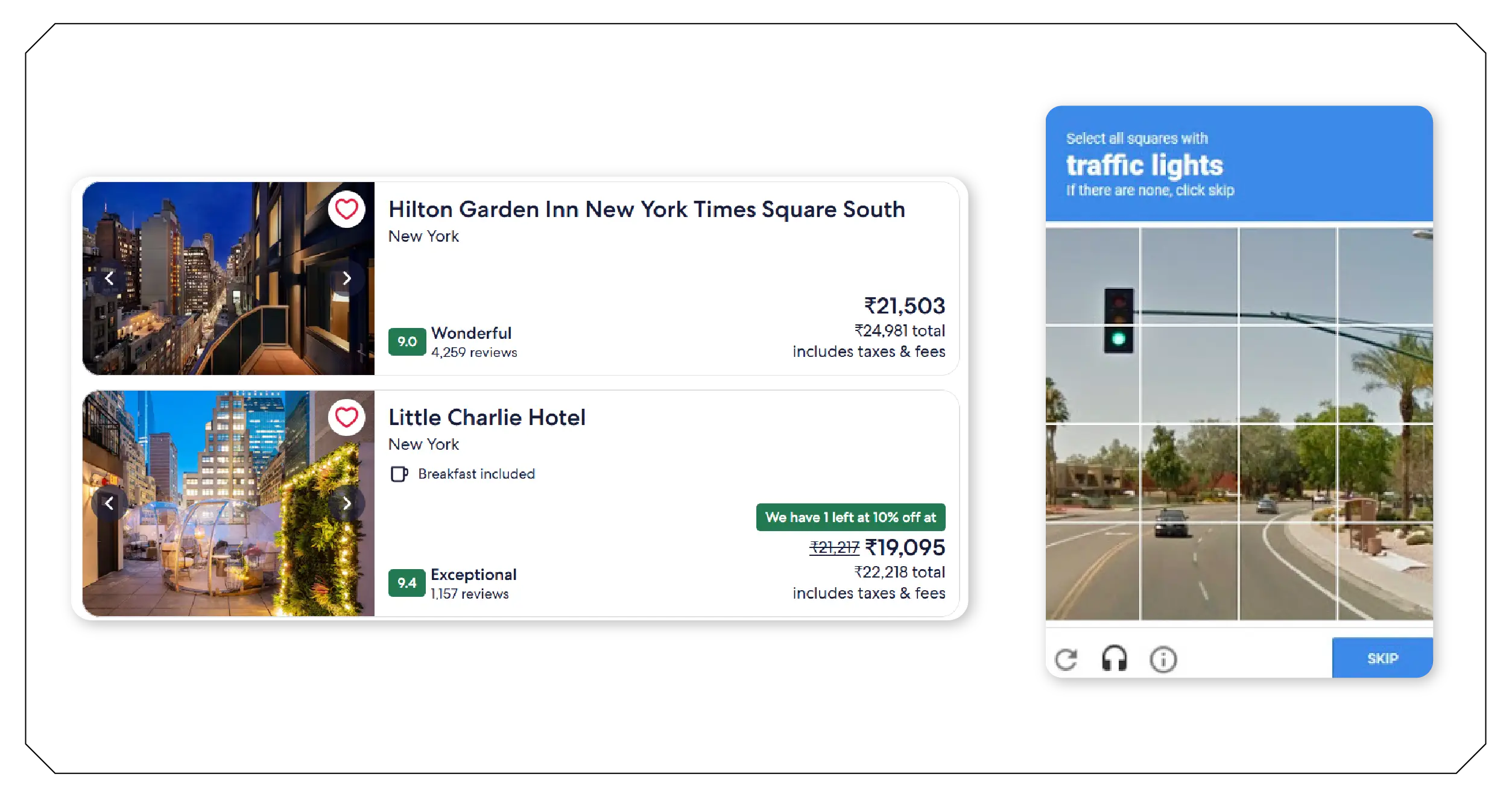How Can NYC Hotel Price Scraping Help Travelers Find the Best Deals?

Introduction
The hospitality industry in New York City is one of the most competitive markets in the world, with thousands of hotels ranging from boutique properties to luxury chains. Travelers are spoiled with options, but this abundance makes it harder for them to identify the best deals quickly. For hoteliers and travel agencies, the challenge is even bigger—how to remain competitive in such a crowded digital ecosystem. That's where NYC hotel price scraping comes into play, allowing businesses to analyze live pricing trends from leading OTAs (Online Travel Agencies) like Booking.com, Expedia, and Trivago. With advanced scraping methods, stakeholders can Scrape Trivago Pricing Data alongside similar datasets from other platforms, ensuring better pricing strategies and improved customer value.
At the same time, competitive monitoring drives smarter decisions. Travelers often jump between multiple OTAs before finalizing a reservation, which makes NYC hotel rate comparison critical for both suppliers and intermediaries. By automating this process through web scraping, companies gain access to vast amounts of structured data that inform pricing, occupancy predictions, and promotional campaigns.
Why NYC's Hotel Market Demands Data Scraping?

New York City consistently ranks as one of the most visited destinations in the world. With tourism contributing billions to its economy annually, competition among hotels is fierce. Travelers flock to OTAs like Booking.com, Expedia, and Trivago because of their vast listings, bundled deals, and discount programs. For hoteliers, however, this poses a unique problem: visibility and pricing competitiveness.
Scraping platforms like these allows businesses to monitor dynamic rates. Through Hotel pricing intelligence NYC, operators can evaluate their own positioning relative to competitors. This insight reveals not only price fluctuations but also demand surges during peak events such as New Year's Eve in Times Square, Fashion Week, or large-scale conferences at the Javits Center.
Why Compare Booking.com, Expedia, and Trivago?
Each OTA has its own strengths:
- Booking.com: Known for its wide coverage of hotels and guesthouses, with flexible cancellation policies.
- Expedia: Offers strong bundling features, especially for flight + hotel packages.
- Trivago: Primarily a price aggregator, helping users compare deals across multiple OTAs.
For researchers, businesses, and even travel startups, analyzing all three sources provides the most comprehensive market picture. For instance, Booking.com Hotel Room Rates Dataset can give granular insights into individual property rates, while Expedia data reveals how bundles affect pricing. Trivago, on the other hand, highlights market positioning since it directly contrasts OTA offers for the same property.
Breaking Down the Scraping Methods
When extracting pricing data from OTAs, several techniques and tools can be applied. The most common involve automated bots or custom APIs that simulate a user's search request.
- Defining Search Parameters: Parameters like check-in/check-out dates, number of guests, and room type need to be standardized across sources to ensure accuracy.
- Parsing Results: Scrapers extract price listings, availability, hotel metadata, and even promotional codes. Structured storage in databases allows for easier future analysis.
- Monitoring Rate Changes: Rates change daily or even hourly. Capturing these updates in near real-time helps analysts spot anomalies or promotional campaigns.
Through Web Scraping Expedia Hotels Data , one can track how rates adjust for weekday vs. weekend stays. Similarly, comparing those results with Booking.com and Trivago provides a competitive pricing map for any given day.
Insights from Metadata Extraction

It's not only prices that matter. Detailed Booking.com hotel metadata extraction allows analysts to understand how listings are structured. Metadata includes star ratings, amenities, guest reviews, policies, and distance from major attractions. This contextual data can then be combined with scraped pricing information to predict booking behaviors.
For instance, a hotel with slightly higher rates but superior review scores might outperform budget competitors in high-demand months. This highlights how scraping extends beyond raw pricing—it powers full Hotel Data Intelligence strategies.
Expedia Data for Inventory Insights
Expedia's ecosystem is unique due to its extensive partner network. Hotels listed here often experiment with room allocation, discounts, and bundling. Scraping allows stakeholders to monitor how inventory is distributed and marketed across this OTA. Advanced scripts for Expedia hotel inventory scraping can capture availability by room category, track cancellation options, and monitor how many rooms are left at a given rate.
This becomes particularly useful when comparing against Booking.com, where different allotments may be visible. If one OTA shows "sold out" while another lists availability, businesses can identify discrepancies that might impact customer perception.
Trivago as the Aggregator Advantage
Unlike Booking.com or Expedia, Trivago acts primarily as an aggregator. Its business model revolves around comparing prices across OTAs for the same property. By choosing to Scrape Trivago Pricing Data, analysts gain access to market-wide visibility.
The data reveals not only where the cheapest rates are found but also the spread between platforms. A hotel listed at $300 on Booking.com but $280 on Expedia will be directly contrasted on Trivago, influencing user behavior. This makes Trivago scraping indispensable for competitive benchmarking.
Applications of NYC Hotel Data Scraping
Applications of NYC Hotel Data Scraping include tracking weekly room rates, identifying seasonal promotions, monitoring blackout periods, benchmarking competitor pricing, and analyzing traveler demand. These insights help travel agencies, aggregators, and businesses optimize strategies while offering competitive, data-driven accommodation solutions.
- Revenue Management: Hotels can adjust prices dynamically by monitoring competitor rates. This ensures occupancy levels remain high without underpricing.
- Market Research for Startups: Travel startups can analyze OTA data to develop tools like trip planners, comparison engines, or niche aggregators targeting specific traveler profiles.
- Event-Based Demand Forecasting: By scraping data before and during events, analysts can predict demand spikes and optimize marketing spend accordingly.
- Consumer Transparency Tools: Companies can build solutions that help travelers find the best deals faster, driving traffic and conversions.
Challenges in Scraping OTA Data

While scraping provides valuable insights, it comes with technical and legal challenges.
- Dynamic Content: OTAs often load data through JavaScript, making it harder for simple scrapers to capture. Advanced headless browsers or APIs are needed.
- Anti-Scraping Measures: Sites deploy CAPTCHAs, IP blocking, and request limits to deter bots. Rotating proxies and user-agent switching are essential.
- Data Standardization: Since each OTA structures listings differently, normalizing data across Booking.com, Expedia, and Trivago is critical for accurate comparisons.
- Ethical & Legal Considerations: Businesses should always comply with the site's terms of use and ensure ethical scraping practices.
Case Study: Rate Analysis for Midtown Manhattan
Imagine scraping data for a 3-night stay in Midtown Manhattan across Booking.com, Expedia, and Trivago.
- Booking.com: Shows rates from $220/night for standard rooms.
- Expedia: Lists bundled deals offering the same hotel at $210/night when booked with flights.
- Trivago: Highlights Expedia's cheaper deal, pushing more traffic toward it.
Through this exercise, analysts observe how bundling impacts competitiveness and how aggregator visibility influences traveler choices. Such datasets are invaluable for hotel managers trying to optimize their OTA partnerships.
Integrating Scraped Data into Business Systems
Once collected, scraped data must be processed and integrated into analytics dashboards. Businesses typically use tools like Power BI, Tableau, or custom-built systems. Scraped OTA data can be blended with in-house metrics such as occupancy, booking lead time, and cancellation rates to optimize decision-making.
For instance, Hotel Data Intelligence platforms use scraped OTA feeds to recommend price adjustments in real-time. This integration transforms raw data into actionable insights that directly impact revenue.
Competitive Pricing Models Using Scraped Data
Scraped OTA data allows hotels to apply advanced pricing strategies such as:
- Dynamic Pricing: Adjusting room rates hourly based on competitor data.
- Segmentation-Based Pricing: Offering different rates for business vs. leisure travelers.
- Geo-Targeted Pricing: Adjusting prices depending on the origin of the booking request.
By comparing scraped datasets across Booking.com, Expedia, and Trivago, hotels can fine-tune these models with greater accuracy.
The Future of Hotel Data Scraping in NYC
Looking forward, as artificial intelligence and predictive analytics evolve, OTA data scraping will play an even larger role. Hotels will not only react to competitor pricing but proactively forecast changes in demand. With increasing competition from alternative platforms like Airbnb, the importance of robust OTA monitoring tools will only grow.
Startups and hospitality enterprises in NYC are already experimenting with machine learning models that use scraped OTA data as training inputs. This empowers systems to recommend pricing updates autonomously, reducing human dependency and accelerating response times.
How Travel Scrape Can Help You?
- Customized Hotel Price Scraping Solutions: We design scrapers tailored to Booking.com, Expedia, Trivago, and other OTAs, ensuring accurate extraction of rates, availability, and deals.
- Real-Time Data Collection: Our tools capture live hotel prices, enabling continuous monitoring of fluctuations for dynamic pricing and competitive analysis.
- Comprehensive Metadata Extraction: Beyond prices, we scrape hotel details such as star ratings, amenities, reviews, and cancellation policies for deeper insights.
- Data Normalization & Integration: We standardize datasets from multiple OTAs into a unified format, making it easy to analyze and integrate into BI tools or APIs.
- Scalable & Secure Infrastructure: Our scraping services handle large volumes of hotel data reliably while complying with ethical and legal best practices.
Conclusion
The ability to scrape and compare OTA data has become indispensable for the NYC hospitality market. With platforms like Booking.com, Expedia, and Trivago holding vast amounts of information, businesses that fail to leverage scraping will lag behind their competitors. By combining datasets from all three, hoteliers gain comprehensive visibility into price fluctuations, availability, and consumer decision drivers.
Ultimately, success lies in going beyond simple comparisons. With Real-time hotel pricing and availability data extraction, businesses can automate competitive monitoring and quickly adapt to changes. Using a Hotel Price Comparison API , developers can create consumer-facing solutions that simplify decision-making. By investing in OTA data scraping to monitor hotel inventory and deals, hotels and travel intermediaries can deliver unmatched value to customers while optimizing revenue streams in New York's ever-competitive hospitality market.
Ready to elevate your travel business with cutting-edge data insights? Get in touch with Travel Scrape today to explore how our end-to-end data solutions can uncover new revenue streams, enhance your offerings, and strengthen your competitive edge in the travel market.